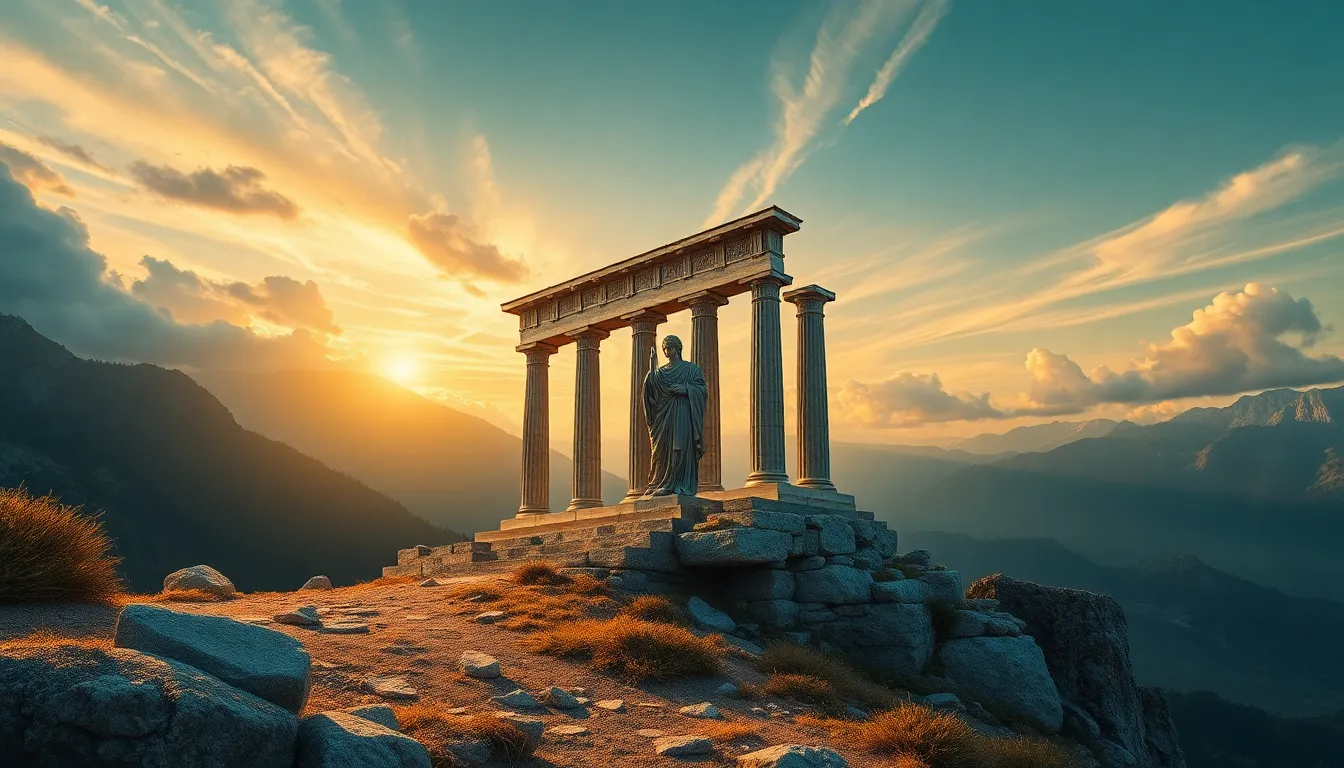The Myth of Orpheus: A Musical Journey Through Time
I. Introduction
Orpheus, a legendary figure in Greek mythology, is often celebrated as the epitome of the power of music and poetry. His tale is not only about a remarkable musician but also a poignant story of love, loss, and the quest for redemption. Orpheus’s journey through the underworld to retrieve his beloved Eurydice has inspired countless generations, showcasing the profound impact of music in both life and death.
The significance of music in Orpheus’s narrative cannot be overstated. His lyre, gifted to him by Apollo, becomes a symbol of his ability to transcend the boundaries of the natural world, charming not only humans but also animals and even inanimate objects. In this article, we will explore the multifaceted impact of Orpheus through history, literature, and music, uncovering his enduring legacy that continues to resonate in contemporary culture.
II. The Origins of the Orpheus Myth
The myth of Orpheus has roots in ancient Greek traditions, with early sources such as Homer and Hesiod referencing his musical prowess. Over time, various interpretations emerged, providing a rich tapestry of stories that highlight different aspects of his character and journey.
- Early Sources and Variations: The tale of Orpheus varies across texts, with some focusing on his tragic love story while others emphasize his role as a prophet and musician.
- Attributes and Symbolism: Orpheus is often depicted as a figure embodying the duality of joy and sorrow, symbolizing the transformative power of art.
- Connection to Ancient Greek Culture: Orpheus is a reflection of the importance of music and poetry in ancient Greek society, representing the belief that art could influence the divine and the mortal realms.
III. The Musical Legacy of Orpheus
Music is central to the Orpheus myth, serving as both a narrative device and a thematic element. Orpheus’s ability to charm all living things with his melodies illustrates the profound connection between music and emotion.
His journey to the underworld, where he plays his lyre to persuade Hades to release Eurydice, showcases music’s potential to bridge the gap between life and death. Throughout history, Orpheus’s legacy has inspired countless composers and musicians, leading to a rich tradition of works that pay homage to his story.
- Role of Music in the Myth: Music acts as a means of communication, expressing feelings that words often cannot convey.
- Orpheus’s Charm: His ability to enchant animals and even the stones signifies music’s universal appeal and power.
- Influence on Composers: From Monteverdi’s “L’Orfeo” to Stravinsky’s “Orpheus,” many composers have drawn inspiration from Orpheus’s tale.
IV. Orpheus in Literature and Art
The myth of Orpheus has been a source of inspiration for countless writers and artists across centuries. His story, rich with themes of love, loss, and redemption, has been interpreted in numerous ways.
- Depictions in Literature: From Ovid’s “Metamorphoses” to modern poetic interpretations, Orpheus’s journey has been retold in various literary forms, each adding depth to his character.
- Visual Art: Artists such as Gustave Moreau and Jean-Baptiste-Camille Corot have created stunning paintings and sculptures that capture the essence of Orpheus and his enchanting music.
- Themes of Love and Loss: The duality of love and loss is a recurring theme in Orphic interpretations, reflecting the universal human experience.
V. The Orpheus Myth Across Cultures
The Orpheus myth resonates beyond Greek culture, with similar narratives found in various traditions around the world. These myths often share musical elements that highlight the significance of music in human experience.
- Similar Myths: The story of Orpheus has parallels in other cultures, such as the Roman figure Orpheus, and Celtic tales that involve musicians descending into the underworld.
- Comparative Analysis: By examining these figures, we can see common themes of love, death, and the redemptive power of music.
- Universal Themes: The shared motifs across cultures emphasize the timeless nature of Orpheus’s story and its relevance to the human condition.
VI. Modern Interpretations of the Orpheus Myth
In contemporary culture, the myth of Orpheus continues to inspire adaptations in various forms of art, including film, theater, and music. These modern interpretations often explore new dimensions of the original myth while retaining its core themes.
- Contemporary Adaptations: Films like “Orpheus” by Jean Cocteau and operas such as “Orfeo ed Euridice” showcase innovative retellings of the myth.
- Influence on Modern Music: The themes of Orpheus are prevalent in genres ranging from classical to rock, illustrating his lasting impact on music.
- Case Studies: Notable works such as Monteverdi’s opera and the ballets inspired by Orpheus highlight how the myth continues to inspire creativity.
VII. The Psychological and Philosophical Implications
The myth of Orpheus offers deep psychological and philosophical insights into human emotions and experiences. It serves as a reflection of our desires, fears, and the complexities of love and loss.
- Reflection of Human Emotions: Orpheus’s journey symbolizes the universal struggle with grief and the longing for connection.
- Philosophical Themes: The myth raises questions about fate, the power of art, and the nature of existence, making it a rich subject for philosophical inquiry.
- Resonance with Modern Audiences: The emotional depth of the Orpheus myth continues to resonate with contemporary audiences, reflecting our ongoing struggles with love and loss.
VIII. Conclusion
Orpheus’s enduring legacy is a testament to the power of music and myth in shaping human experience. His story transcends time and culture, reminding us of the profound connections between art and emotion.
As we reflect on the continuing relevance of music and mythology, we recognize the ability of storytelling to capture the complexities of the human condition. The myth of Orpheus serves as a powerful reminder of the transformative power of music, love, and the eternal quest for understanding and redemption.




